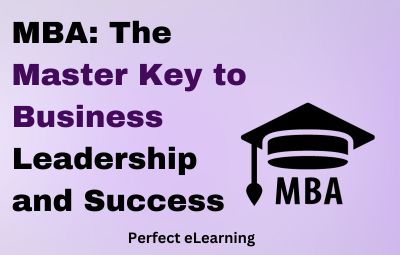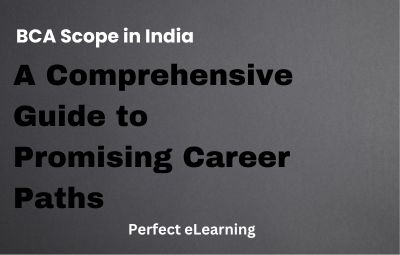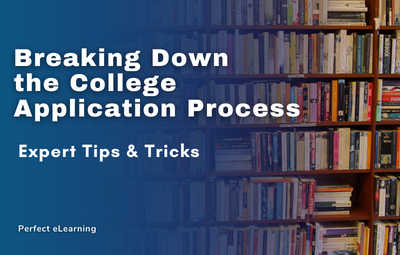

An MBA is the key to unlocking your business leadership potential. Gain the skills and expertise to lead with confidence and make a lasting impact.
In the fast-paced world of business, the pursuit of excellence is a constant journey. One way individuals seek to unlock their potential and propel their careers forward is through the acquisition of a Master of Business Administration (MBA) degree. In this article, we delve into the significance of an MBA as the master key to business leadership and success.
1.The Evolution of MBA Programs
1.1 Historical Background
The roots of MBA education trace back to the early 20th century when it was introduced as a response to the changing demands of the business world. Understanding this historical context provides insights into the evolution of MBA programs.
1.2 Shift in Curriculum
Over the years, the MBA curriculum has evolved, adapting to the dynamic needs of the global business landscape. Modern programs now emphasize a multidisciplinary approach, integrating elements of finance, marketing, and leadership.
1.3 Specializations in MBA
The availability of diverse specializations within MBA programs allows individuals to tailor their education to specific industry requirements, fostering expertise in areas such as healthcare management, technology, and entrepreneurship.
2.Advantages of Pursuing an MBA
2.1 Skill Development
An MBA offers a comprehensive skill set, honing analytical, strategic, and leadership abilities. This holistic development is invaluable for navigating complex business scenarios.
2.2 Networking Opportunities
The business world thrives on connections. MBA programs provide a fertile ground for networking, facilitating interactions with fellow students, alumni, and industry professionals, opening doors to opportunities.
2.3 Career Advancement
Holding an MBA often fast-tracks career advancement. Employers value the depth of knowledge and strategic thinking that MBA graduates bring to the table, positioning them for leadership roles.
3.Choosing the Right MBA Program
3.1 Accreditation
Opting for an accredited MBA program ensures that the education meets recognized standards, enhancing the credibility of the degree.
3.2 Program Reputation
The reputation of the MBA program and the faculty members play a pivotal role in shaping the overall learning experience. Researching program reviews and alumni success stories is crucial.
3.3 Specializations offered
The availability of specialized tracks aligning with personal and professional goals is a key consideration when choosing an MBA program.
4.Real-world Impact of an MBA
4.1 Success Stories
Numerous success stories highlight the transformative impact of an MBA on individuals' careers, showcasing how it serves as a catalyst for achievement.
4.2 Influence on Entrepreneurship
MBA graduates often exhibit an entrepreneurial spirit, leveraging their education to create and lead successful ventures, contributing to economic growth.
4.3 Global Perspective
The global exposure gained through MBA programs equips graduates with a nuanced understanding of international business, a valuable asset in our interconnected world.
5. Common Myths About MBA
5.1 Only for Business Graduates
Contrary to popular belief, MBA programs welcome individuals from diverse educational backgrounds, fostering a rich mix of perspectives.
5.2 Expensive Investment
While the cost of MBA programs can be significant, the return on investment, both in terms of career progression and earning potential, often justifies the expense.
5.3 Limited Career Options
An MBA opens doors to a myriad of career options beyond traditional business roles, including consulting, healthcare management, and nonprofit leadership.
6.Challenges and Criticisms
6.1 Critiques on MBA Education
Some critics argue that MBA programs can be too focused on theory, lacking practical application. Addressing this concern is crucial for the continued relevance of MBA education.
6.2 Addressing Challenges
MBA programs are evolving to incorporate more hands-on learning experiences, addressing criticisms and ensuring graduates are well-prepared for real-world challenges.
6.3 Continuous Learning
Lifelong learning is essential in the ever-evolving business landscape. MBA graduates are encouraged to embrace continuous learning to stay abreast of industry trends.
7.Tips for Excelling in an MBA Program
7.1 Time Management
Balancing coursework, networking, and potentially a full-time job requires effective time management skills to excel in an MBA program.
7.2 Networking Strategies
Actively engaging in networking events, industry conferences, and alumni associations can significantly enhance the MBA experience and future opportunities.
7.3 Balancing Work and Study
Many MBA students juggle work and study commitments. Striking the right balance is crucial for success, requiring careful planning and prioritization.
8.Future Trends in MBA Education
8.1 Online MBA Programs
The future of MBA education is increasingly digital, with online programs offering flexibility and accessibility to a broader audience.
8.2 Integration of Technology
Technological advancements are reshaping business practices. MBA programs are integrating technology-related courses to prepare graduates for the digital age.
8.3 Flexibility in Learning
Recognizing the diverse needs of students, future MBA programs may embrace flexible learning structures, allowing individuals to tailor their education to personal and professional circumstances.
Conclusion
In conclusion, an MBA is the master key that unlocks the doors to business leadership and success. Its multifaceted benefits, from skill development to global perspectives, make it a valuable asset in the journey towards professional excellence.
Frequently Asked Questions (FAQs)
Q1. Is an MBA only for individuals with a business background?
A1: Not at all! MBA programs welcome individuals from diverse educational backgrounds, fostering a rich mix of perspectives.
Q2. Are online MBA programs as effective as traditional ones?
A2: Online MBA programs are gaining popularity and can be equally effective, offering flexibility and accessibility.
Q3. How can networking during an MBA program benefit my career?
A3: Networking provides opportunities to connect with industry professionals, potentially opening doors to career advancements and collaborations.
Q4. What are the key challenges of pursuing an MBA while working full-time?
A4: Balancing work and study commitments can be challenging. Effective time management and prioritization are essential.
Q5. How does an MBA contribute to success in entrepreneurship?
A5: An MBA equips individuals with the skills and knowledge needed to navigate the complexities of entrepreneurship, increasing the chances of success.
Perfect eLearning is a tech-enabled education platform that provides IT courses with 100% Internship and Placement support. Perfect eLearning provides both Online classes and Offline classes only in Faridabad.
It provides a wide range of courses in areas such as Artificial Intelligence, Cloud Computing, Data Science, Digital Marketing, Full Stack Web Development, Block Chain, Data Analytics, and Mobile Application Development. Perfect eLearning, with its cutting-edge technology and expert instructors from Adobe, Microsoft, PWC, Google, Amazon, Flipkart, Nestle and Info edge is the perfect place to start your IT education.
Perfect eLearning provides the training and support you need to succeed in today's fast-paced and constantly evolving tech industry, whether you're just starting out or looking to expand your skill set.
There's something here for everyone. Perfect eLearning provides the best online courses as well as complete internship and placement assistance.
Keep Learning, Keep Growing.
If you are confused and need Guidance over choosing the right programming language or right career in the tech industry, you can schedule a free counseling session with Perfect eLearning experts.


